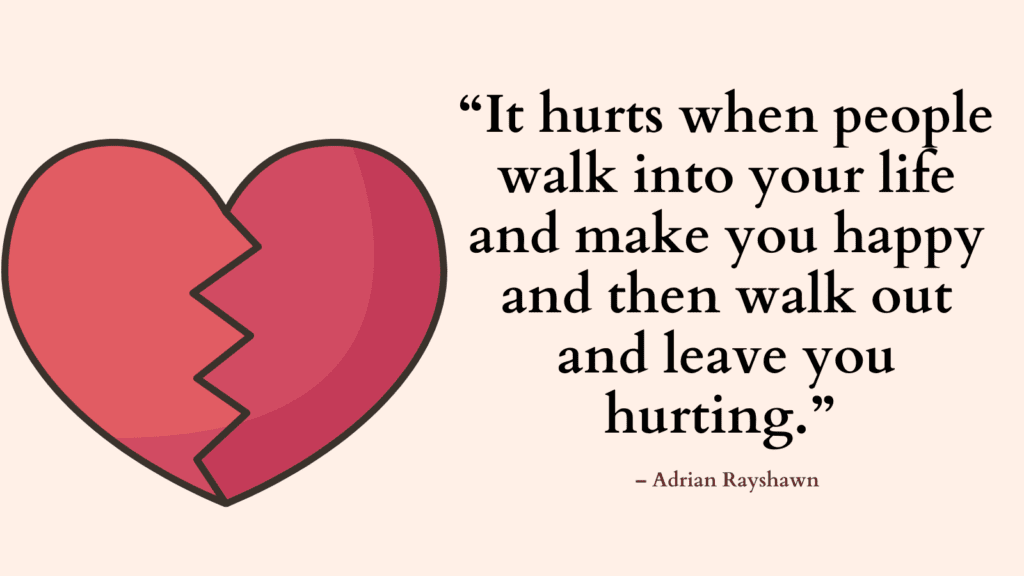What Is Betrayal Trauma?
We experience feelings of betrayal when someone close breaks our trust.
The pain of betrayal can leave deep wounds and can sometimes be traumatic, especially when the person who broke our trust is a parent (or childhood caregiver) or a romantic partner.
People often respond to betrayal by pulling away from the person who betrayed them.
But because these are key relationships in our lives, you may find yourself having to maintain a relationship with the betrayer for support or protection.
In a romantic relationship, you may not need your partner to survive, but you probably depend on them for love and companionship.
Betrayal Trauma Test: Do I Have Betrayal Trauma?
Most people who experience betrayal trauma also experience many of the symptoms of post-traumatic stress disorder (PTSD).
The following betrayal trauma test includes many questions about symptoms of PTSD.
Answering these questions will help you assess the symptoms and the degree to which they’re affecting you. You also retake the test and compare the results over time to assess if symptoms of PTSD are softening or not.
Results
#1. When I discovered my partner’s betrayal, I felt the relationship was severely threatened or could end.
#2. When I discovered my partner’s betrayal, I felt intense feelings of helplessness, horror, and anxiety.
#3. Since discovering my partner’s betrayal, I have been experiencing intrusive distressing thoughts and/or dreams about their betrayal.
#4. I have been reliving the experience of discovering my partner’s betrayal in my head (flashbacks, illusions, and even hallucinations as if you were actually there again)
#5. I experience intense feelings of distress when exposed to something that reminds me of my partner’s betrayal.
#6. I find it difficult to recall aspects of information about my partner’s betrayal.
#7. Since discovering my partner’s betrayal, I have been experiencing difficulty sleeping, irritability, difficulty concentrating, and exaggerated startled responses.
Note: This test is a tool to help you understand what PTSD symptoms you are experiencing related to the betrayal you went through. It is not intended to be a substitute for professional counseling advice, diagnosis, or treatment.
Results
The questions above represent common signs of betrayal trauma. If you answered yes to most of these questions, then you might be struggling with betrayal trauma.
Related: Betrayal Blindness – What Is It & How To Overcome It?
The Impact Of Betrayal Trauma
Betrayal trauma can affect every area of life. You may experience:
- Inability to resume normal level of caring behavior in any relationship, including those with friends, parents, and children
- Decreased work efficiency
- Feelings of unworthiness and low self-esteem
- Depressed mood punctuated by torrents of anger, shame, guilt, and anxiety.
- Physical pain, insomnia, digestive troubles, etc.
Related: 7 Stages Of Betrayal Trauma (+7 Tips For Overcoming Betrayal Trauma)

Conclusion
When someone we trust betrays us, our sense of safety can be shattered and the resulting trauma can be severe.
Facing what happened can be painful, but the only way out is through.
Related: Best 55 Betrayal Trauma Quotes That Will Make You Feel Less Alone
Betrayal Trauma FREE Resources
TED Talks
Debi Silber: Do You Have Post Betrayal Syndrome?
Roselyn Aker-Black: Surviving Betrayal
Podcasts
Betrayal Recovery Radio: The Official Podcast of APSATS | hosted by Dr. Jake Porter
From Betrayal To Breakthrough | hosted by Dr. Debi Silber
The BTR.ORG Podcast – Betrayal Trauma Recovery | hosted by Anne Blythe
Choose To Be with Choose Recovery Services; Betrayal Trauma Healing | hosted by Alana Gordon & Amie Woolsey
References
- Portions of this article were adapted from the book Living and Loving After Betrayal, © 2013 by Steven Stosny. All rights reserved.
- Betrayal trauma – Wikipedia
- Betrayal Trauma: Signs, Recovery & Getting Help (choosingtherapy.com)
- Betrayal Trauma: Signs and How to Start Healing (healthline.com)
- Betrayal Trauma – an overview | ScienceDirect Topics
- Definition of Betrayal Trauma Theory (uoregon.edu)
- (PDF) The Impact of Betrayal Trauma on the Tendency to Trust (researchgate.net)
- Betrayal trauma: relationship to physical health, psychological distress, and a written disclosure intervention – PubMed (nih.gov)







